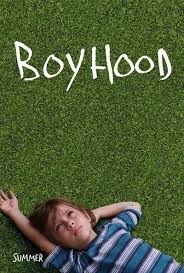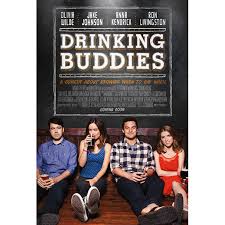Play Review: The Flick at the Steppenwolf
For a while now I’ve contended that real life is far more interesting than any genre that requires a significant suspension of disbelief. It’s why I prefer Tobey Maguire in Wonderboys to Spiderman or Jim Carrey in Eternal Sunshine of the Spotless Mind to Dumb and Dumber. It’s what makes the Seven Up documentaries so fascinating and why Richard Linklater’s Boyhood received such critical acclaim. It’s why I would love just once to see Tom Cruise play a boring suburban man struggling with parenting or household projects, because with his acting chops it wouldn’t be boring at all. It might even be thrilling. Even in my own rather mundane life I find myself jotting down notes on an almost daily basis about potential writing topics. Life is infinitely interesting.
In Annie Baker’s The Flick, real life takes to the stage with near perfection in Chicago's Steppenwolf Theater production of the Pulitzer Prize-winning play. Three hours long, deliberately paced, and with hardly a plot point to hang its subjects on, it isn’t for all tastes. Approximately fifteen percent of theater patrons left at intermission, and according to comments in the question and answer session that followed the play, this isn’t uncommon, but it is a shame, because the second half offers the payoff that even the more antsy theater goers would have appreciated.
The Flick tells the story of three employees working at a rundown, one-screen theater, The Flick. We watch as newly-hired Avery joins veteran Sam clean up after each film, and at first they spend a lot of time, well, sweeping and mopping the floor. Details emerge slowly, little by little, week after week, and we gradually learn more about the characters, including mundane details that appear not to have any significance, such as Avery’s ability to link any two actors in six degrees of separation or less and his vomit reflex when seeing other people’s feces. We learn that Sam is still living at home, seemingly content to watch life pass him by as he silently pines for Rose, a lesbian who runs the film projector, and who – along with Sam – has developed a scheme to take a little extra meal money from the till.
For all the play reveals, it leaves many questions unanswered. We watch the orbits of these three lonely people intersect but their worlds never collide, and we don’t leave the theater knowing all the details of each character’s lives, which might beg the question from someone who hasn’t seen the play: “Then what the hell did they talk about for three hours?!” Well, for one thing, they didn’t talk a lot, at least not in the first half. The pauses aren’t just pregnant, they’re two weeks overdue and expecting octuplets. My friend Terry thought the first half of the play could have used a good editing job, but I was enthralled from the first sweep of the broom. Hell, it won the Pulitzer Prize, and maybe even a good edit wouldn’t have served the play well.
In the question and answer session that followed the play, I was thrilled to hear other patrons offer insights that I overlooked, interpretations I hadn’t considered, but perhaps my friend Terry offered the most valuable insight of all: that the play sheds light on a world so often neglected. Not the world of theater ushers specifically, but of the people who do the work that allows the rest of us to enjoy a night out. The Flick could just have easily been The Café, The Playhouse or The Nightclub. As George Bailey says in It’s a Wonderful Life, “They do most of the working and paying and living and dying in this community,” and their lives are as fascinating to me as a mobster's or a media mogul's.
The Flick continues its run at the Steppenwolf through May 8. I can’t recommend it more highly.

